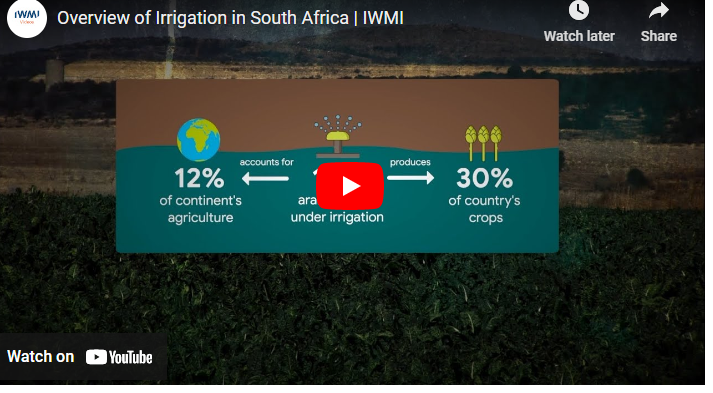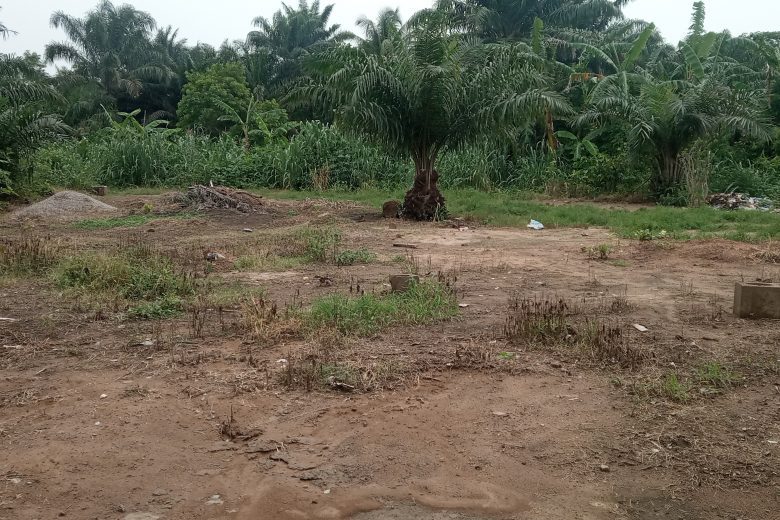Farming is a major occupation in Lesotho comprising both crop planting and animal rearing. The venture is highly profitable because of the increasing demand for locally produced farm products due to the increase in the price of imported food products.
It is with this view that many persons in the country are showing interest to venture into farming. This has led to a lot of queries about how to start farming in Lesotho.
To answer the above question, you will have to carry out a survey, choose your preferred type of farming, a source for the fund, acquire a farm site, clear and spray the farm site, make heaps, crop management, and fertilizer application.
To get more information concerning each of the above steps, ensure you read through this entire material to the end.
How To Start Farming In Lesotho Step By Step Guide
Farming is an interesting venture that can be time and resource-consuming but in the end, you will enjoy the profit after having a successful yield.
Step 1: Carry out a survey
Before you go into farming in Lesotho, it is important to research to acquire knowledge and also make a prospective choice regarding the type of farming you have a passion for.
You can meet with established farmers in your desired farming area to learn from them the nitty-gritty of the farming activities. Also, it is during this phase that you will prepare on the way to go about getting funds to start your farming business.
Read Also: How To Start Cashew Farming Step By Step Guide
Step 2: Choose your Preferred Type of Farming
Farming is a broad field and it is subdivided into two categories mainly animal and crop farming. Animal farming refers to the raising of animals for food and other meaningful use; while crop farming is the planting of edible crops
Interestingly, both aspects of farming are grossly practiced in Lesotho. You can choose to carry out one or both farming enterprises if you have the resource and budget.
Also, crop farming and animal rearing are broad with both having varieties of areas you can venture into. If you choose to go into crop farming, you will have to choose the aspect that you want to go into. The same applies to animal husbandry.
Read Also: How To Grow Cucumber In Pots & Container
Step 3: Try to Source for Fund
The fund is a crucial part of farming. Without money, you may not get all the necessary items you need to begin and run a successful farm.
You can apply for a loan from a bank or grants related to agriculture. Also, you can seek assistance from friends and family that can support you financially.
Step 4: Acquire a Farm Site
Once you have the finance aspect sought out, it is time to begin the farming activities by purchasing or renting a farm site where you will plant your crops. The farm site for a beginner differs depending on the type and size you intend to start with.
The ideal farm size should be an acre for root crops and tree planting. It can be a plot of land if you intend to begin vegetable, cereal, or legume farming.
Read Also: How To Start Ostrich Farming In Zambia [Beginners Guide]
Furthermore, there are factors to be considered before selecting a farm site such as soil components, temperature, water proximity, and level of pest and insect infestation, among others.
Step 5: Clear the Farm Site
Now you have to clear the land to make it ideal for farming. Trees, shrubs, grasses, and other unwanted plants should be cleared from the farmland to create a farmable area on the site.
This activity can be done manually through skilled laborers or the use of machines suitable for the purpose.
Once the land is fully cleared, the dirt should be disposed of. You can also burn trees and shrubs that cannot be easily disposed of on the land, this action will further help to get rid of hidden weeds that were not removed during the clearing phase.
Step 6: Spray the Farm Site
It is best to spray the land before the farm bed-making or sowing stage. This will further get rid of unwanted plants on the land.
Also, it will protect the land from pest infestation and mitigate against the growth of unwanted plants within the shortest time after clearing.
Step 7: Plough the Farm Site
The land should be plowed so that the soil can be in a proper state for planting. The soil will be made loosed and mixed as well as burying any remaining unwanted plants on the field below the soil to avoid germinating.
Step 8: Make Heaps
Now is the time you make a seed bed where the crop seedlings will be planted to germinate to the mature and fruiting stage.
You can make use of simple farm tools or mechanized tools to carry out this task.
Step 9: Seed Planting
After heaping, you can wet the farmland mildly (especially if it is posted rainfall season) so that the soil will have enough moisture to house the seeds.
You should visit an established farmer, nursery or agriculture ministry to get your seeds. The best seedlings to go for are hybrid seeds.
You can plant the seeds directly or through a transplanting of pre-germinating seeds on the prepared farm bed.
Step 10: Crop Management
After planting your crop seedlings, there are other activities you need to perform to ensure the plant germinates properly for optimal yield. They are
Mulching
This has been proven to be the best method of soil moisture conservation. Mulching can be done organically using dried weeds and grass or inorganically using polythene material.
Watering
You have to water your farm daily to provide the plant with enough water for daily physiological activities and as well provide the soil with moisture.
Plant watering is best done through irrigation by creating irrigation channels between the farm bed rows through which the water will flow.
Weeding and Pest Control
You have to weed your farm by removing weeds that germinate in between the plants contending or space and other nutritional resources.
Also, pest control by the spraying of pesticides to keep pests away from attacking the plants on the farm.
Step 11: Fertilizer Application
You have to apply fertilizer on your farm to provide help the soil replenish nutrients that will help the plants to grow appropriately. Fertilizer application is to be done at an interval as the plant continues to grow.
How to Start Animal Farming in Lesotho
To start animal farming in Lesotho, you have to follow the steps outlined and discussed below
Step 1: Get a Farmland
You have to acquire farmland where you can raise your animals. The land should be suitable with adequate weather conditions and the right soil property.
Step 2: Prepare the Land
The land should be cleared of any unwanted plants or trees. The waste should be cleaned and disposed of.
Step 3: Get an Animal Home
You can either buy or construct your animal house. There are different types of homes designed for different animals and of different sizes. Typical animal houses are hutches, cages, galvanized wired houses, and pens.
Step 4: Get your Animal’s Breed
Contact a reliable animal breeder to purchase the egg, a day-old or kid of the animal you wish to raise.
Step 5: Stock your Animal
After purchasing your animal breed, stock them in the houses you prepared where they will be raised.
Step 6: Animal Management
You have to manage your pet to make sure they receive the right care and nourishment that will make them grow to maturity and ready to be marketed.
You have to feed them and clean up their houses to avoid attracting predators and pests. Also, you have to treat them by administering their shots or dose at an interval to boost their immunity against disease.
How do I become a Beginner Farmer?
As a beginner farmer, you should, first of all, identify the area of farming you are interested in. Then you have to acquire the knowledge and skills needed; source for the fund, get farmland where you can farm and procure your seedlings. Then plant your crop seedlings, mulch, irrigate, weed, and fertilize to maturity.
Is Lesotho suitable for agriculture?
Lesotho is home to diverse arable lands for animal grazing and crop planting. however, several factors such as drought, overgrazing, erosion, and land degradation are among numerous challenges limiting farming activities in the country.
What Crops Are Grown in Lesotho?
The main crops grown in Lesotho remain corn, beans, wheat, sorghum, and peas.
Which is the Best Farming to Earn Money?
Farming is very broad and there are different areas of farming through which you can earn money. However, the best farming to earn money are dairy farming, vegetable, crop farming, fish farming, tree nursery, and cattle farming,
Which Type of Commercial Farming is Practiced in Lesotho?
The type of commercial farming that is commonly practiced in Lesotho is none other than the Machobane farming system. This type of farming system entails the application of simple, low input techniques that is intercropping based as well as a local method of manure application.
What Does Lesotho Produce?
Agriculture is a major business venture in Lesotho. The majority of the country’s population earnings are derived from agriculture activities. However, other viable economic activities in the country include garments, diamonds, water, electricity, wool, and mohair exportation.
How do Small Farmers Make Money?
There are different ways you can make money as a small farmer. Chiefly is to grow dual crops. While the season of one crop ends or is yet to produce, the other would have begun to produce. Also, you can rent out your farmland if you are using it. Likewise, you can rent out your farm tools as well.
In addition, you should consider growing and selling extra seedlings. You can as well start a market garden and sell vegetables.
How do Farmers get Rich?
Agriculture is an enterprise with prospects and very lucrative. Farmers who are the main players in this field often acquire their riches through the sales of their farm produce, either animal or crops.
Mostly, farmers who are into commercial large-scale farming make the most of their money because they produce, process, and export their products.
How do you get Money to Start a Farm?
There are different methods of getting money to start up your farm business. You can seek and apply for grants, and collect loans from a bank and other financial service agencies. You can even source money from your friends and family who can support you.
Why is Agriculture important in Lesotho?
Agriculture has been for many decades a major economic activity in Lesotho to the extent that it serves as the main source of income, as well as an important supplementary source, for a majority of the population that are settled in the rural areas.
What is Block Farming?
Block farming is a system of farming whereby farmers are provided with all the necessary farm requirements such as dedicated large farmland, land preparation tools, inputs, harvest, and access to the market. Block farming aims to help agricultural practitioners farm successfully.
What are the types of Agriculture?
Agriculture has four main types which are livestock production, crop production, agricultural engineering, and agriculture economics. All other branches of agriculture fall under these four categories.
Winter crops in Lesotho
Winter crops grown in Lesotho are wheat, peas, radish, cabbage, carrots, onions, and garlic.
When to Plant Potatoes in Lesotho
Potatoes planting in Lesotho is best grown during the summer season starting anytime from mid-September to December.
Block farming in Lesotho
Block farming in Lesotho has been in existence since the 1970s. Lesotho government has developed several agricultural programs to continue to supply farmers in the country with subsidized farm tools, inputs, and access to markets to encourage and improve farm activities in the country.
Challenges Facing Agriculture in Lesotho
Environmental and climate change conditions such as overgrazing, floods, droughts, increasingly unpredictable weather patterns, and land degradation are the major challenges inhibiting agricultural practice in Lesotho.
Agricultural Policy in Lesotho
The primary agricultural policy in Lesotho is a basic rural management system, agricultural subsidy policy, resources, and environmental protection policy.
Conclusion
I believe you will find this step-by-step guide to be helpful as you embark on your farming venture in Lesotho. Do well to follow the guideline for a successful farming enterprise in the country.




One Reply to “[Complete Guide] How To Start Farming In Lesotho”